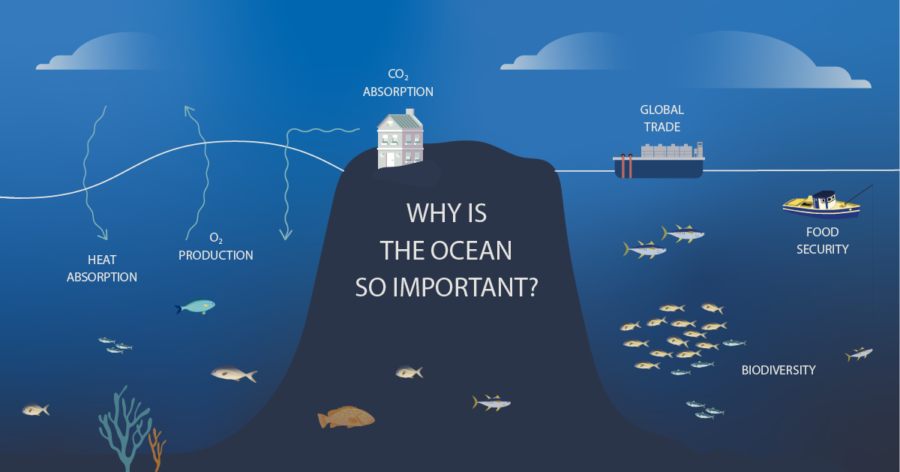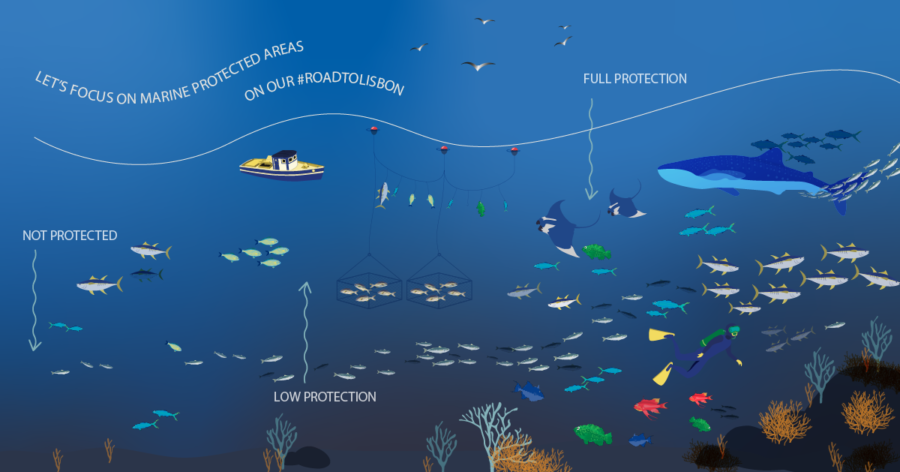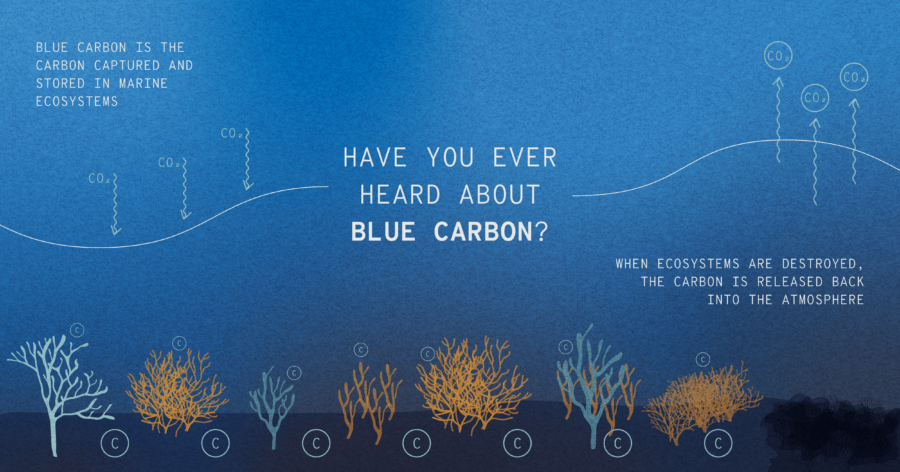Have you ever thought that the health of the planet depends on the health of the ocean? In addition to playing a key role in regulating the climate and the water cycle, the ocean also plays an important role in the production of oxygen and the absorption of greenhouse gases, namely carbon. Half of the oxygen on the planet is produced by the ocean. From tiny microscopic phytoplankton to algae, kelp beds and seagrasses, they all produce oxygen and absorb carbon dioxide.
Ocean currents transport heat from the equator to the poles, from the surface to the deep ocean, regulating our climate and weather patterns. The ocean absorbs more than 90% of the excess heat produced by greenhouse gases. Without the ocean, humans would no longer have a habitable Earth to live on.
We are currently facing a biodiversity crisis. The ocean needs urgent protection and Marine Protected Areas (MPAs) are the most effective tool to save what is left and restore marine life, thus benefiting present and future generations. Only 7% of the ocean is currently protected through MPAs, but less than 3% is fully or highly protected. And we know that only these high levels of protecting can derive the ecological, social and economic benefits of MPAs. To assure a healthy, productive, and resilient ocean, at least 30% of the world’s ocean must be fully or highly protected by 2030 in efficient, connected, and representative networks of MPAs. This target, recommended by scientists, is known as #30by30.
Blue carbon is the currency of the future, it is the carbon captured and stored in the ocean.
The ocean is the largest carbon store on the planet. Like land-based ecosystems, carbon is emitted back into the atmosphere when the marine environment is destroyed, thereby contributing to climate change.
However, the ocean is not usually acknowledged as an important carbon reservoir and consequently, it is not integrated in mitigation policies for climate change strategies.
Some examples of blue carbon ecosystems are mangroves, saltmarshes, estuaries, seagrass beds, but also the deep sea and species biomass.
From June 27 to July 1, Lisbon will host the UN Ocean Conference, organized by the United Nations and co-hosted by the Governments of Portugal and Kenya. The overarching theme of the Conference is “Scaling up ocean action based on science and innovation for the implementation of Goal 14: stocktaking, partnerships and solutions”.
The Conference has the objective of mobilizing global support for ocean protection and conservation. It provides an opportunity for civil society to meaningfully contribute to save the planet.
Oceano Azul Foundation believes in driving change for ocean protection by pushing the international community (United Nation Member States) to act, as the lack of action has been a key reason for the current ocean crisis. Therefore, the UN Ocean Conference should:
– Agree on establishing a network fully or highly protected MPAs in at least 30 per cent of the global ocean no later than 2030.
– Adopt the legally-binding UN agreement on high seas biodiversity (BBNJ) now to ensure a protected global ocean;
– Prioritise territorial waters for sustainable small-scale fishers
– Stop destructive fishing practices, subsidies that promote overfishing and achieve transparency in management and reporting,
– Combat illegal, unreported, and unregulated (IUU) fishing.
Protecting the ocean if key for a sustainable future.




